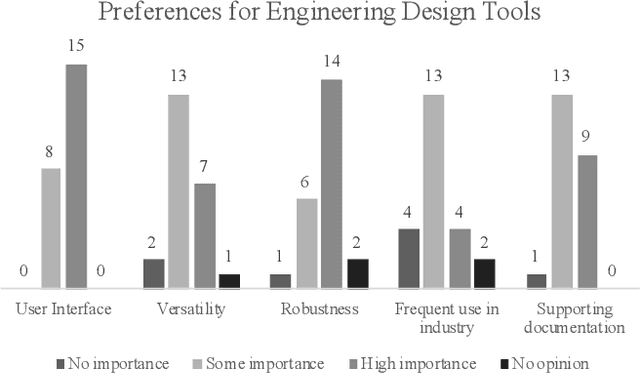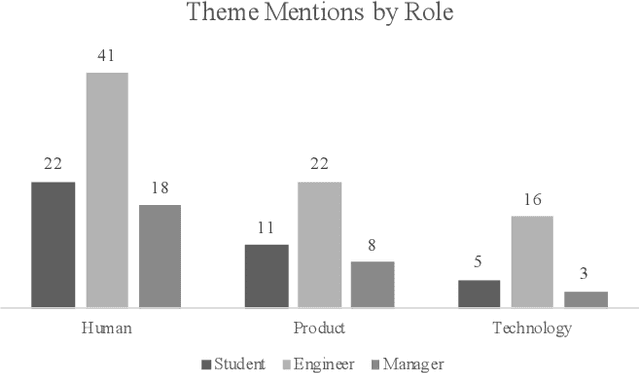Sean Walton
It's the Journey Not the Destination: Building Genetic Algorithms Practitioners Can Trust
Oct 13, 2020



Abstract:Genetic algorithms have been developed for decades by researchers in academia and perform well in engineering applications, yet their uptake in industry remains limited. In order to understand why this is the case, the opinions of users of engineering design tools were gathered. The results from a survey showing the attitudes of engineers and students with design experience with respect to optimisation algorithms are presented. A survey was designed to answer two research questions: To what extent is there a pre-existing sentiment (negative or positive) among students, engineers, and managers towards genetic algorithm-based design? and What are the requirements of practitioners with regards to design optimisation and the design optimisation process? A total of 23 participants (N = 23) took part in the 3-part mixed methods survey. Thematic analysis was conducted on the open-ended questions. A common thread throughout participants responses is that there is a question of trust towards genetic algorithms within industry. Perhaps surprising is that the key to gaining this trust is not producing good results, but creating algorithms which explain the process they take in reaching a result. Participants have expressed a desire to continue to remain in the design loop. This is at odds with the motivation of a portion of the genetic algorithms community of removing humans from the loop. It is clear we need to take a different approach to increase industrial uptake. Based on this, the following recommendations have been made to increase their use in industry: an increase of transparency and explainability of genetic algorithms, an increased focus on user experience, better communication between developers and engineers, and visualising algorithm behaviour.
 Add to Chrome
Add to Chrome Add to Firefox
Add to Firefox Add to Edge
Add to Edge